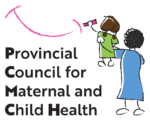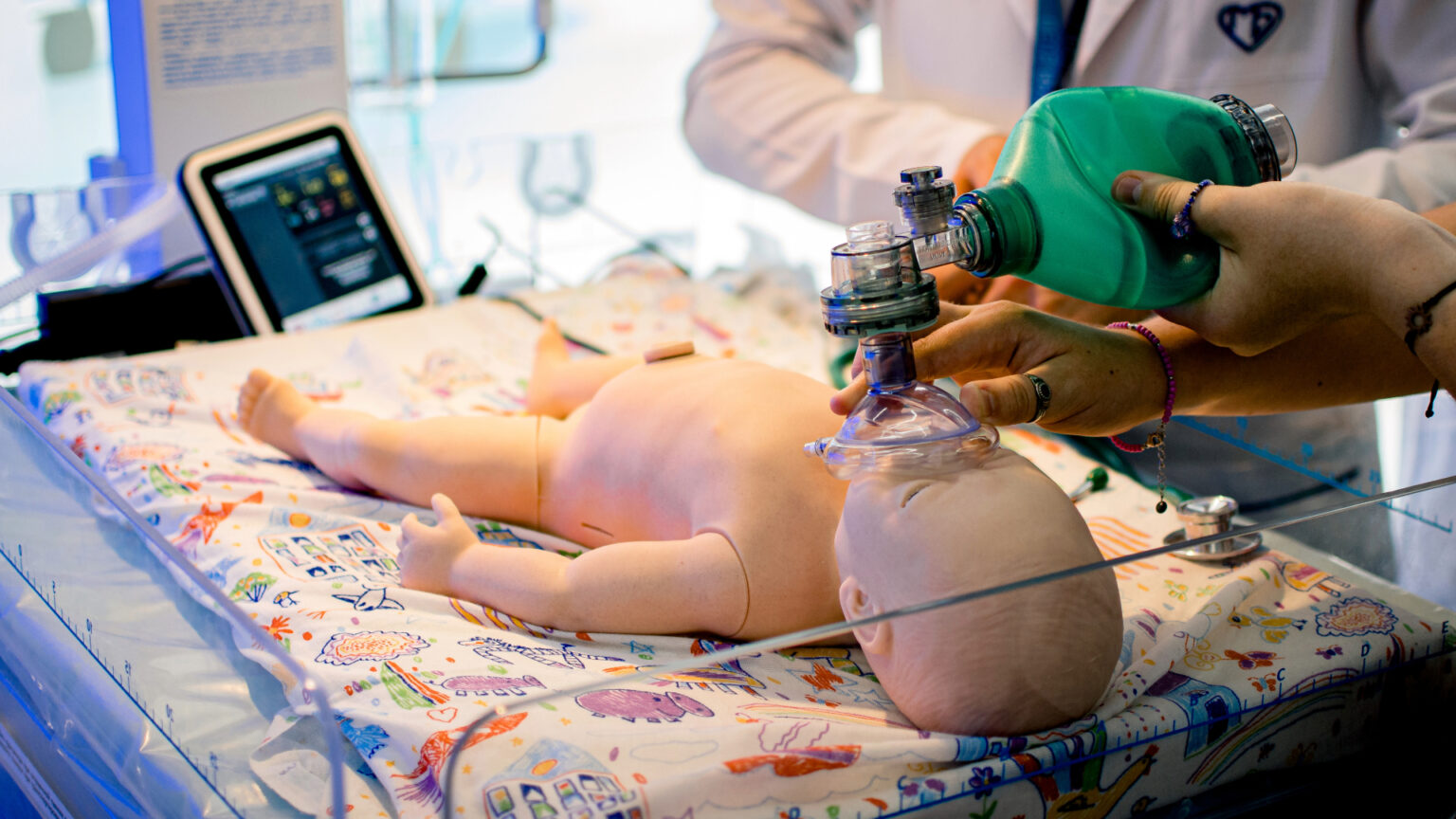Continuous professional development is essential to perinatal, neonatal and paediatric care. From emerging technologies to evolving best practices, ongoing education ensures that healthcare providers deliver safe, evidence-based and compassionate care for infants, children and families.
Ontario’s regional maternal-child health networks (called “regional networks”) support the professional development of perinatal, neonatal and paediatric care providers throughout the province. Such supports may include simulation-based training, virtual workshops, certification programs, and more.
Given their strong connections with healthcare providers and organizations, the regional networks are well-positioned to identify regional needs and service gaps. Below are three examples of how Ontario’s regional networks are using education to advance perinatal, neonatal and paediatric healthcare.
Improving perinatal mental health
Within Ontario Health (OH)’s Central Region, addressing perinatal mental health (PMH) is a top priority for the Women & Children’s Health Network (WCHN). According to data analyzed by the WCHN, as many as 50 per cent of pregnant people report mental health concerns in the perinatal period in some municipalities within this region, well above the provincial rate of 23 per cent.
“PMH is a growing health concern that requires our collective action,” said Marnie Lightfoot, Regional Director for WCHN. “Our regional perinatal mental health strategy supports system-level change to improve health outcomes for those most in need.”
One of the ways WCHN is working to improve PMH is by offering educational programming to healthcare providers in the region. The WCHN website, for example, offers online learning opportunities to providers, which include a PMH education series that is free for clinicians in the region.
Last year, the WCHN profiled PMH at its annual education event, which led to the training of 19 clinicians in behavioural activation (BA) to support increased access to care. A second cohort of clinicians will be trained in April; this work stems from recent research: the SUMMIT trial. In addition, the network is using PCMCH’s Care Pathway for the Management of Perinatal Mental Health to help build a PMH pathway on its website, so clinicians know where to send patients in the region.
Supporting care for children and youth with medical complexity
To build the competencies of healthcare providers who care for children and youth with medical complexity, Kids Come First – a paediatric care network in the OH East Region – launched its Centre of Excellence (CoE) for Pediatric Home Care Education in 2023.
The CoE’s continuous learning opportunities cover a variety of important subjects, ranging from the care and management of enteral feeding tubes to venous access device management to communication skills and much more. Due to the unique care needs of children and youth with medical complexity, the CoE often customizes their educational offerings.
"If we have a nurse joining a simulation session and they have a specific question about a child they care for who is at risk of having the tracheostomy tube accidently decannulated, we will adjust the learning objectives accordingly," said Lorraine VanMunsteren, a nurse educator with the CoE. "We tailor the simulations for the caregiver based on what they're seeing and struggling with, including different communication styles for children who are non-verbal.”
Kids Come First’s CoE seeks to continue building their curriculum to meet the learning gaps in the region. This includes providing educational offerings to care providers who care for children and youth with increasingly complex medical issues who can live at home.
Supporting regional education needs
For the Southern Ontario Maternal Child Health Network (SOMCHN), supporting the educational needs of perinatal, neonatal and paediatric care providers in the OH West Region is a key strategic priority.
SOMCHN is actively engaging and developing partnerships with healthcare institutions and providers. Recently, the network partnered with the Simulation, Resuscitation and Outreach Centre (SiROC) at McMaster Children’s Hospital to address a key learning need within the region: stabilization and care for babies at risk of becoming unwell in the first hours or days after birth.
“We’re working closely with SiROC and network members to facilitate access to educational opportunities across our region,” said Kimberley Felker, Executive Director of SOMCHN. “For example, we recently supported training for instructors in the Neonatal Resuscitation Program (NRP) as well as Acute Care of at-Risk Newborns (ACoRN). These new instructors will be able to provide expanded access to NRP and ACoRN education for more healthcare providers, which in turn will enhance care for patients and families.”
In addition, SOMCHN is exploring ways to address a current gap in Fetal Health Surveillance (FHS) instructor education at the local level. SOMCHN will continue working collaboratively to facilitate equitable access to educational programming that is flexible, creative and responsive to emerging needs.
Improving perinatal, neonatal and paediatric health outcomes
Ontario’s regional networks are strengthening the skills and knowledge of healthcare providers through innovative learning solutions, to effectively address the needs in their respective regions. Through this work, the regional networks ensure that care remains evidence-based, responsive and equitable, to improve health outcomes for Ontarians.
Are you interested in learning more about Ontario’s regional maternal-child health networks? Visit the PCMCH website for more information, including links to the different networks. Learn more about the key functions and features of the regional networks.

